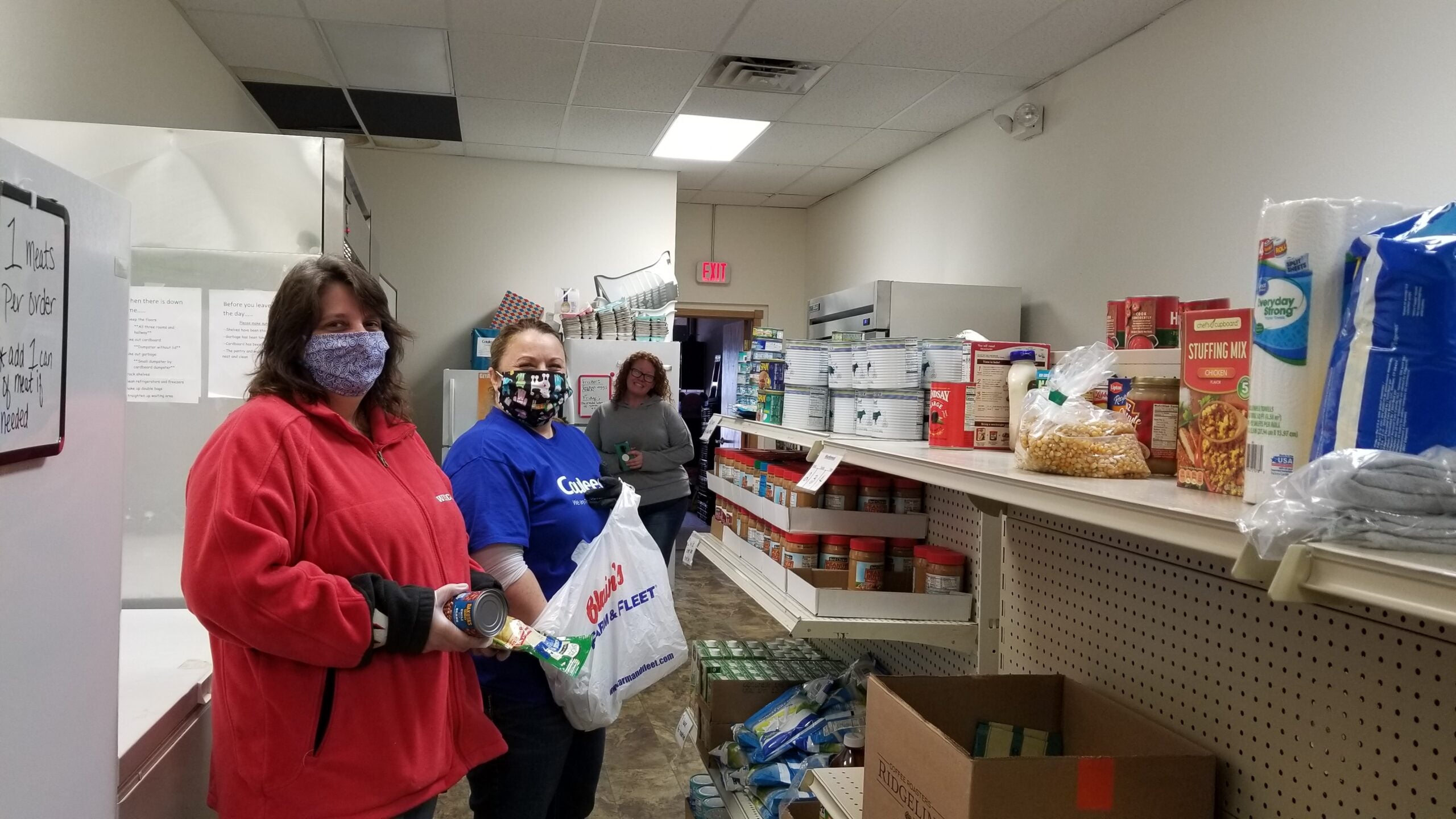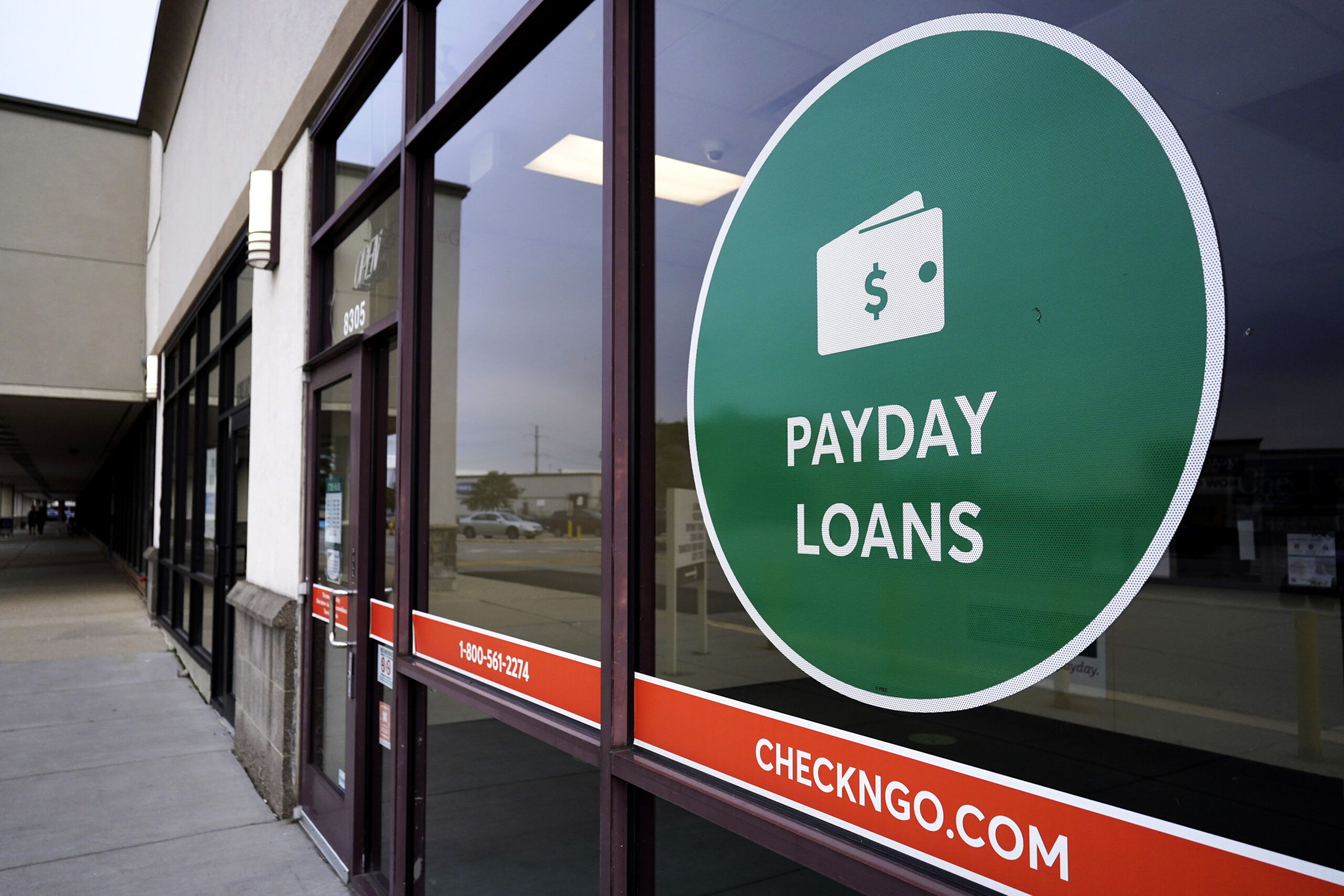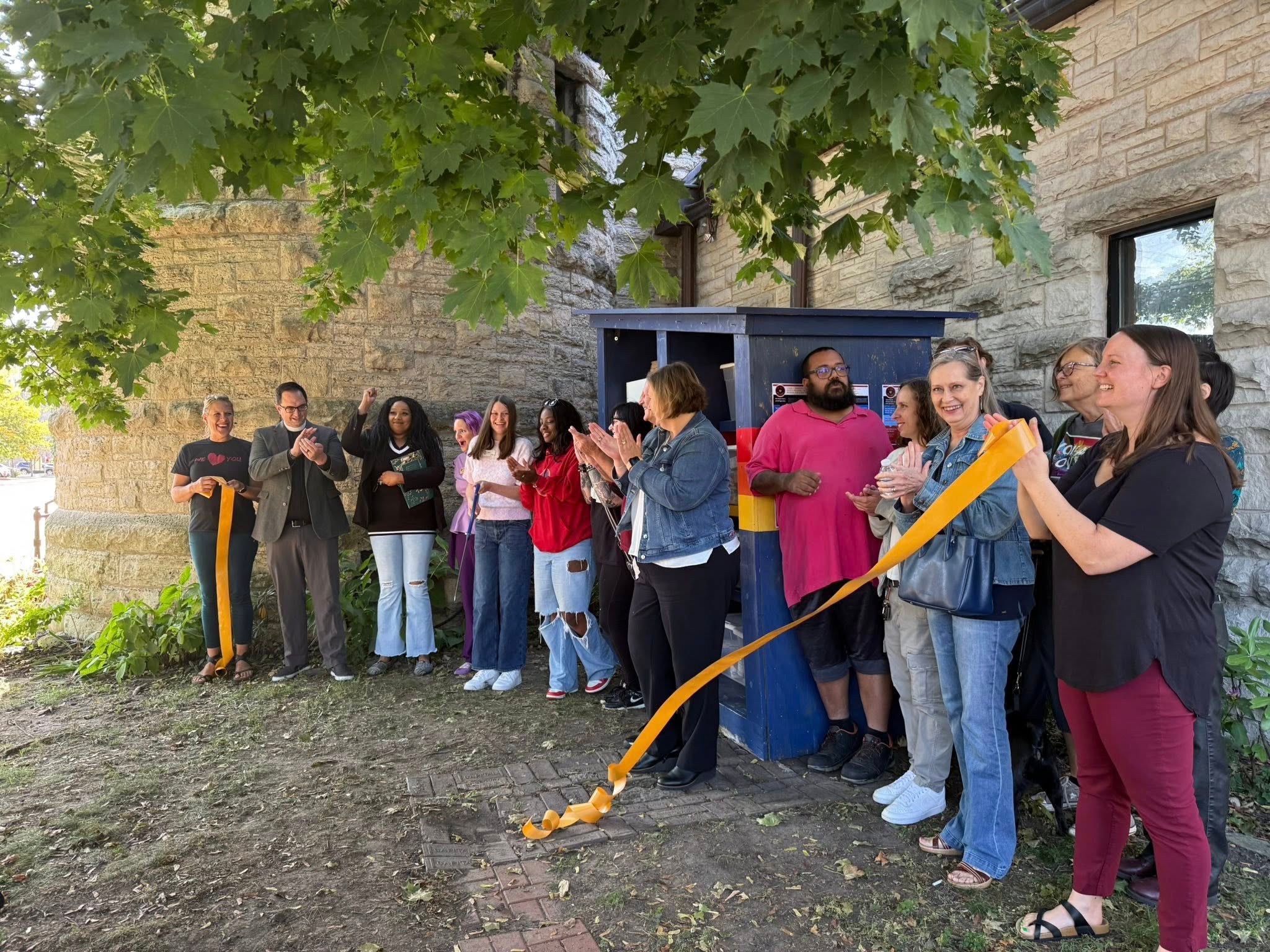Some Wisconsin nonprofits that traditionally help those in poverty have expanded the definition of poverty to help more people through the COVID-19 pandemic.
Community Action Programs (CAPs) use federal, state and local funds to help people with challenges like employment, housing and food insecurity.
Most were created by the federal government in the 1960s as a response to President Lyndon Johnson’s “War on Poverty.”
News with a little more humanity
WPR’s “Wisconsin Today” newsletter keeps you connected to the state you love without feeling overwhelmed. No paywall. No agenda. No corporate filter.
Each CAP in Wisconsin has assistance programs tailored to the needs of the region they serve, including during the coronavirus pandemic.
“Many Community Action Programs are getting inquiries from people experiencing hardships due to COVID–19, particularly as businesses shut down and resulting lost wages combine to take a real economic toll. We also have a pretty good indication that food pantries have seen a spike,” said Brad Paul, executive director of WISCAP, a statewide organization that supports the regional programs that fight poverty across the state.
“While COVID-19 has brought new stresses and increased demand, many of the current needs are consistent with what CAPs have long provided. That is, housing assistance, emergency food, child care and employment assistance,” he said.
“So, in some respects it is more a question of reconfiguring relief efforts and responding to the heightened demand. And, this is a considerable challenge,” Paul added.
Couleecap Inc., based in Westby, provided financial help with things like housing and transportation to more than 21,000 people living in poverty in Crawford, Vernon, Monroe and La Crosse counties last year.
But in the last month, the agency has been contacted by a different type of clientele.
“We see people coming to us for help that may have not ever come to Couleecap or any other social service agency,” said executive director Hetti Brown.
“We see people who may have made a moderate income or salary before and maybe even have had a little savings account to fall back on, but they were laid off weeks ago, and they haven’t had any income coming in, they haven’t received any unemployment benefits or any of the benefits passed recently by the federal government, and they’re starting to fall behind on their bills,” said Brown.
With the help of area foundations and other nonprofit fundraising groups, Couleecap started a short-term cash assistance program to help people who have temporarily lost jobs or had their hours cut. It’s meant to be a source of cash until they can access unemployment and other benefits from the government.
The U.S. Census Bureau reported the 2018 poverty rate in America was 11.8 percent, down 3 percent since 2014. The federal government considered a family of four with an income around $25,500 and a single person making $13,000 to be living in poverty in 2018.
But with more people now experiencing temporary loses in employment, income guidelines for Couleecap have been relaxed to ensure people qualify for the new local fund. The fund is now available to people who earned 250 percent of the federal poverty rate — for a family of four, that’s $65,500 per year or nearly $32,000 for someone who is single.
Brown said they have also extended the time food pantries in Sparta and Prairie du Chien are open and are offering curbside pickup and food delivery.
Couleecap is also making referrals to other agencies that would be better suited to helping someone who has been hurt by the pandemic and giving counsel to others about budgeting in an emergency.
Some of that counsel includes tips on how to stay up-to-date on bills and rent, and what do to if someone can’t.
“Even though they may not be evicted right now, this situation is going to put them further and further behind on their rent payments and other critical bills, so that when the moratorium (on rent) is lifted they may still be evicted for inability to pay if they’re not ready to make those back payments, or they’re not making payments as the go,” said Brown.
“We are encouraging people to try to stay up on your bills, to still seek assistance if you need help staying up on your mortgage, rent, car payments or other critical bills because we don’t want people to be in a more detrimental financial situation in the future,” she added.
While CAPs have made significant adjustments to address increased need, the state’s stay-at-home order has challenged the work they normally do.
“The rapid spread of the coronavirus significantly impacted our ability to serve the community. Shortly before Gov. Evers issued the mandatory safer-at-home order, we made a decision to reduce services as a way to slow the spread of this deadly virus,” said George Hinton, CEO of the Social Development Commission (SDC), the CAP that serves Milwaukee County.
“We are a high-touch industry. Our success depends on our ability to honestly connect with people. Usually that’s face–to–face and it’s hard to do without putting people at risk. Our teams are dispersed and working remotely. The set-up makes it difficult to help customers take advantage of integrated services,” he said.
Hinton said SDC is evaluating whether to create new programs, while working to maintain existing programs, to help those in poverty.
“We may produce new programming or expand current programs in response to the community’s need,” Hinton said. “Mental health will be a major issue for people impacted by this crisis.”
“It is important to note that our critical services did not stop. For example, our food services team continues to prepare and deliver food to local day care centers. This helps Milwaukee County’s essential workers stay on the job. We are looking at ways to partner long-term with other organizations to better address food insecurity issues in our community,” he said.
Hinton said SDC is also still helping people with emergency home energy needs, tax preparation and supporting students who are trying to earn a high school diploma while learning online.
WISCAPs Paul said the state’s CAPs are a good place for people who find themselves in a sudden financial emergency to go to for advice.
“CAPs have long dealt with poor households and community strain, but the current crisis has further exposed both the fragility of our safety net, as well as the structural inequalities present in our economic system,” he said. “The governor’s moratorium on evictions reminds us just how housing insecure so many people are across the state, and it is a deeply cruel irony that our most essential workers are revealed to be amongst the lowest paid.“
Wisconsin Public Radio, © Copyright 2026, Board of Regents of the University of Wisconsin System and Wisconsin Educational Communications Board.







